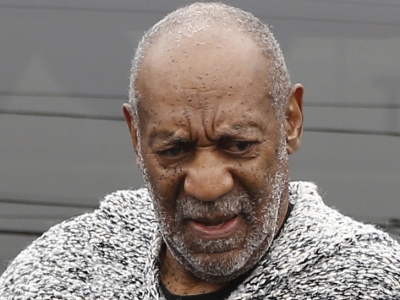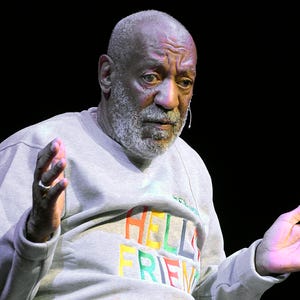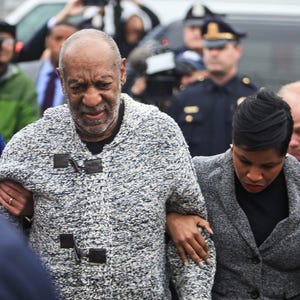What's going to happen at first Bill Cosby criminal hearing?

Will the criminal sexual-assault charges against Bill Cosby ever go to trial? A hint may come Tuesday in a courthouse in Montgomery County, Pa., outside Philadelphia.
Assuming no delay, Cosby faces his first hearing on criminal charges that he hopes to persuade a judge to dismiss.
And some legal analysts say Cosby may succeed.
"I feel that, unfortunately, the current prosecutor has overstepped his bounds," says New York lawyer Jerry Reisman, who's been following the case. "A former prosecutor made a representation on behalf of his office ... that he would not prosecute (Cosby), so unless they can find some new circumstance, such as fraud, I feel that the case should be dismissed."
If that happens, he says, the likelihood of Cosby being tried in this case is probably nil.
Here's the set-up:
The case: The actor-comedian, 78, is charged with felony aggravated indecent assault and accused of drugging and sexually assaulting ex-Temple University employee Andrea Constand at his Montgomery County home in 2004. Cosby says the encounter was consensual.
Presiding: Montgomery County Judge Steven O'Neill. The hearing's focus: Was there a no-prosecution deal covering Cosby, is such a deal binding and enforceable now, and if the answer is yes, should O'Neill grant Cosby's motion to dismiss the charges?
The prosecutor: Montgomery County District Attorney Kevin Steele, elected in November after vowing to pursue Cosby. He plans to use Cosby's words in a deposition in Constand's 2005 civil suit to argue that the encounter with her was a crime.
The former prosecutor: Bruce Castor, who was defeated by Steele. Castor says — and is expected to testify as Cosby's witness — that he promised Cosby and his then-lawyer (now dead), Walter Phillips Jr., that if Cosby testified fully in a deposition in Constand's 2005 civil suit, Castor would never use the testimony against him.
The defendant's baggage: Five dozen women have accused Cosby of drugging and/or sexually assaulting them in episodes dating to the mid-1960s. And in his Constand deposition (made public 10 years later), he acknowledged obtaining drugs to give to women he sought for sex.
Cosby has denied wrongdoing and, until Dec. 20, had not been charged with a crime. Because other accusations against him are so old, it's unlikely he will be criminally charged in any other case.
But this is not a slam-dunk case, according to Reisman and defense lawyer Kevin Sali of Portland, Ore., who's also been following it.
The arguments: Steele says any deal should have been written down and approved by a judge and since it wasn't, it's not binding on him, it's not enforceable. Therefore, the case against Cosby should proceed.
Reisman says the judicial system can't function if lawyers can't rely on the representations of other lawyers and prosecutors.
But, he concedes, "Cosby's lawyers (in 2005) were negligent in not having this (deal) ... in writing." Still, "the judge is doing the right thing in conducting a hearing and letting each side present its case."
Sali says Contract Law 101 is clear about oral-vs-written deals. "An oral agreement is just as binding as a written agreement, with some exceptions (not relevant here)," he said. "If one prosecutor makes an otherwise enforceable deal, it is binding on subsequent prosecutors."
But is Cosby's deal enforceable?
"Quite possibly yes," Sali says. Usually in a criminal case, "a promise by a prosecutor becomes finally binding if there’s a detrimental reliance on the part of the defendant to do something, or avoid doing something, that he otherwise would have done differently."
Translation: If Cosby "relied" on Castor's promise and agreed to do something detrimental to his interests — such as testify fully in a deposition — then that's enforceable.
The judge's possible options: He could rule the deal is not binding, not enforceable, and not relevant to this case. Then a new hearing would proceed on Cosby's other reasons for his motion to dismiss. Cosby could then appeal, thus delaying a trial.
Another option, Sali says, is that the judge could rule there was a deal, it is binding and enforceable, and dismiss the charges.
Or, the judge could rule that Steele can proceed with his case but can't use Cosby's deposition testimony. That would return the parties "back to their positions in 2005," Sali said.
If that happens, it's once again Constand's word against Cosby's.


